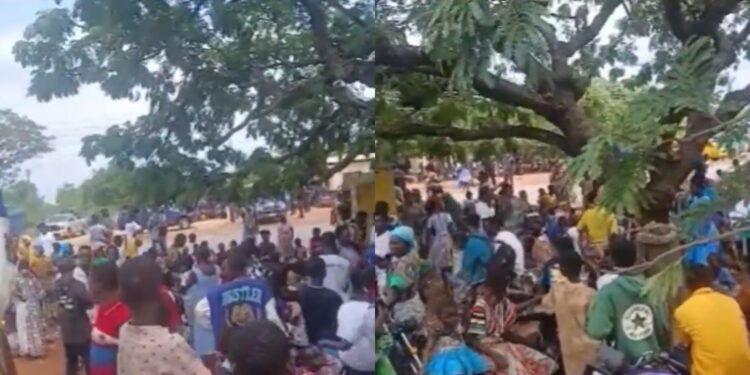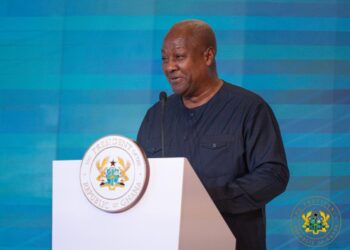The Africa Centre for Security and Counterterrorism has praised the voluntary return of displaced residents to Gbiniyiri from Côte d’Ivoire, describing it as a major peace milestone that underscores the strength of community-driven reconciliation.
In a statement issued in Accra on September 11, 2025, Executive Director Emmanuel Kotin of the Centre noted that the spontaneous repatriation, which followed consultations between President John Mahama and the Yagbonwura, occurred even before the government’s mediation committee could begin its work.
The return, it said, demonstrates that peace rooted in traditional authority and local leadership often proves more effective than external interventions.
The think tank, however, cautioned that Gbiniyiri risks sliding back into conflict if the root causes are not addressed. Of the displaced, about 13,000 crossed into Côte d’Ivoire while thousands more were forced to relocate within Ghana.
It cited unresolved land disputes, unchecked land sales, resource competition, and high youth unemployment as persistent drivers of conflict in northern Ghana.
“The Gbiniyiri conflict (August 24, 2025) claimed 31 lives and displaced 50,000 persons, with 13,000 fleeing to Côte d’Ivoire. The voluntary repatriation, which occurred before the government’s seven-member mediation committee could convene, demonstrates that traditional authority and community leadership can achieve what external interventions cannot. However, root causes persist, including land ownership disputes, a lack of consultation in land sales, resource competition, and youth unemployment. Without addressing these structural issues, Northern Ghana will continue experiencing cyclical violence.
Bawku’s decades-long crisis exemplifies the failure of temporary measures. Despite repeated interventions, it remains a managed crisis that resurfaces with each political cycle. Gbiniyiri must not follow this path,” the Centre stated.
Referring to the Bawku conflict as a cautionary tale, the Centre stressed that Gbiniyiri must avoid becoming another cycle of unresolved crisis.
Quoting the 1978 Alhassan Committee Report, the Centre argued that the failure to reform land and chieftaincy systems continues to fuel tensions.
It urged government to seize this moment to push through lasting structural changes, including land reforms, youth employment opportunities, and permanent peace-building mechanisms.





































